When can I legally and safely use free music in marketing and corporate videos? Infographic below.

As usual, the proper answer is – it depends. This post looks at some common situations and gives you simple answers. At the end I will give you a simple rule of thumb to help you decide if a particular piece of music is safe to use.
Finding free music
There is no shortage of free music on the Web these days. Illegal file sharing and piracy aside, many musicians and composers are consciously offer their music for free download. Some typical sources of legal free music include public domain music, commercial music distributed under the creative commons license, and music created by unsigned and amateur hobbyist musicians.
Public Domain music
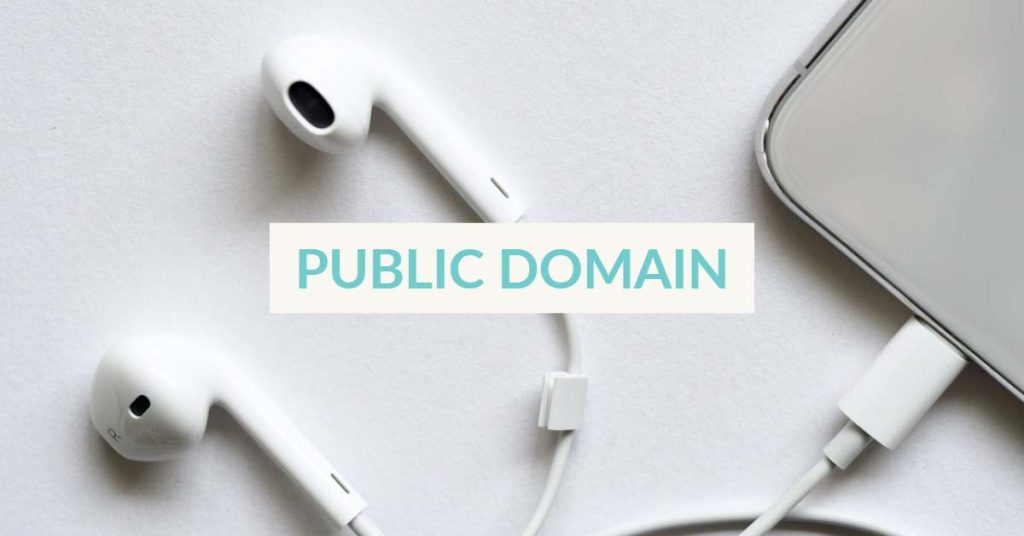
Public domain music includes the musical works with the copyrights expired due to time and music that never had copyrights, such as folk songs or songs by unknown authors. Occasionally, the authors may decide to explicitly put their work in the public domain by giving up copyrights.
Important! When using public domain music make sure that both the composition and the recording are in public domain.
It’s often the case that the older compositions are indeed in public domain, yet the various recordings of these composition are more recent and, therefore, still copyrighted.
Furthermore, the copyright laws may differ greatly from country to country, so check the interpretation that applies to your jurisdiction.
Creative Commons music
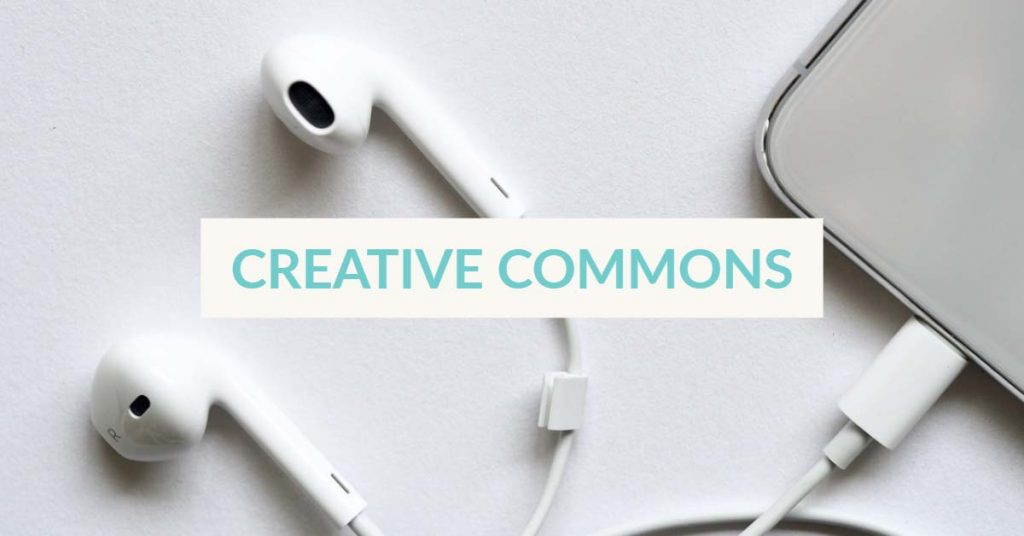
Creative Commons license is one of several public copyright licenses that enable the free distribution of an otherwise copyrighted music under certain conditions. That is, the author grants you the right to use the music, as long as you agree to respect the limitations.
Important! Creative Commons music isn’t free for all uses but only for those specified by the license.
Most common limitations are: Attribution (you must credit the author), Share-Alike (you must distribute the derivative work under the same conditions as the original), and Non-Commercial (you may not use the music in a commercial project).
Music downloaded from musicians Web sites
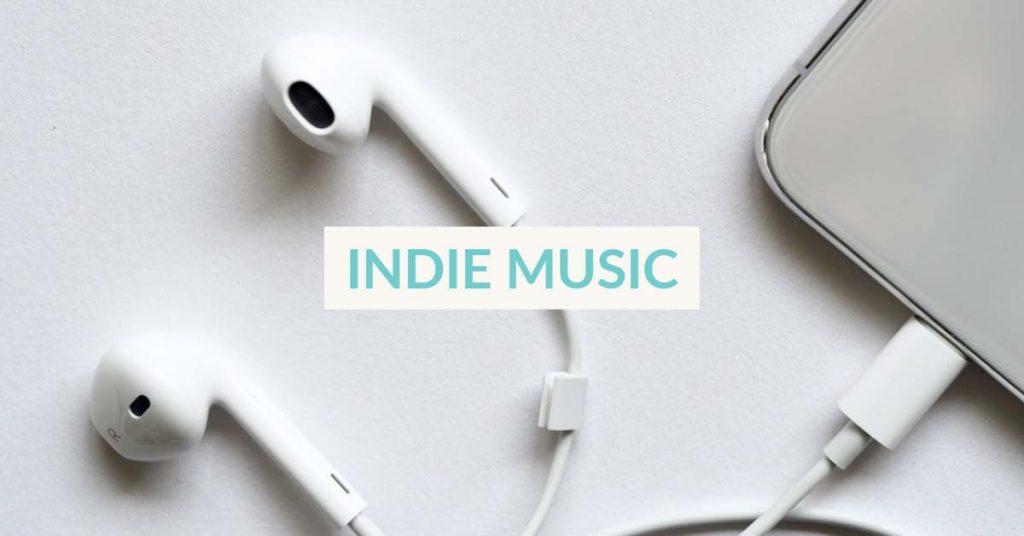
Many professional and amateur musicians alike allow free downloads of their music. Some do it to introduce upcoming albums, some to promote live shows, and some just like sharing their creations with the world with no commercial intent. The reasons may vary but it will be your responsibility to make sure that you can use any of that music in your marketing videos.
Important A free download does not generally mean you are free to use the music any way you please.
Many musicians adopted a business model of distributing their music for free, yet they do expect compensation (in a form of a sync license or the performance royalties or both) if their music gets used in film or video.
Your first step should be finding out who controls the right to the music you are downloading. For commercial music you will need to identify the record label (controls the recording) and the publisher (controls the composition) and officially request the license.
Related: Read more about licensing commercial music for video
In case of independent musicians, you will have to deal directly with the author or even a group of authors. Contact the musician and ask if you could use the music in your video or media project. Many indie musicians will be happy to grant you the permission in exchange for attribution and exposure. You must be careful to make sure you secure the permission from all group members and anyone else who may be able to claim the ownership of both the song and the recording.
I strongly advise getting the permission in writing and making sure it explicitly covers your intended use, including the commercial use if applicable.
Related: Read what questions you should be asking indie musicians to safely license their music
Music downloaded from music social networks
Similar to downloading music from musicians Web sites, you need to reliably establish the copyright owner and formally request the license that explicitly covers your intended use. Some popular musicians communities are Soundcloud, Reverbnation, and Acidplanet.
Music from promotioms and samplers
Samplers are normally distributed by record labels and indie musicians exclusively for promotional purposes and do not imply any other use. If you like the music get it touch with the publisher / musician and negotiate the license that covers your intended usage.
Any site offering free music as a bonus for signups, views, “likes” and so on
The offer itself may be legit. Many musicians or their official distributors offer free downloads for, say, Facebook likes, even though, Facebook is discouraging this practice. However, just like with the sampler CDs, the music is shared for promotional purpose, which does not necessarily grant you any rights above simply enjoying it as a listener.
A totally different case is when you can’t make the reliable connection between the site and the owner of the music. Here’s an example: “Sign-up for our video marketing newsletter and download 5 free songs to use in your videos!” Sounds good? Perhaps, but how do you know if those 5 free songs were properly licensed for free re-distribution and not being used illegally just to grow their email list?
Any site offering large quantities of “Rights Free”, “Free Production Music”, “Free Royalty Free Music”, and so on
Remember the old saying? If it seems too good to be true then it probably is. I don’t want to generalize but you always have to do your due diligence if the offer looks too good.
Some warning signs: there is no clear indication of who are the music authors, the licensing terms are not spelled out (except that it’s all free), free music comes as a bundle with another paid service, unlimited downloads for an unreasonably small free, and so on.
Just recently I came across a site (I wouldn’t mention the name here) that offers some 40,000 music tracks for anywhere between $0 and $0.99. While this may look like a very attractive offer for a budget minded video producer, the question is how did they come to acquire such a huge selection of discounted music? I personally don’t know any professional (or even semi-pro) composers who would be willing to give away extended rights to their music for less than a dollar without AT LEAST getting a credit to their name or collecting the performance royalties! Granted, many musicians offer their music free for promotional reasons and under creative commons license but not in an anonymous download-all-you-want manner. Trust me, there are quite a few much better alternatives even for a rookie music producer.
I would also put in the same questionable category any site offering unlimited downloads for a small annual / monthly (and I even have seen one-time) fee. Just think how could they possibly compensate their composers? The chances are they don’t , meaning you will be getting the music not properly cleared for your project.
This post was originally written in 2014. Nowdays, there are reputable subscription based libraries that offer unlimited access for the monthly or annual fee.
I happen to distribute my music through one of such libraries – TunePocket – that offers unlimited access to thousands of stock music tracks, loops, and sound effects from $99 / year.
UNLIMITED ROYALTY FREE MUSIC FOR VIDEOS & COMMERCIAL USE
Unlimited download. Lifetime license. Save over 50%.
Music licensed for other projects or to other video producers
If you are re-using the music licensed for some other projects and the license does not explicitly allow for multiple use, you are violating the license agreement. Similarly, you can’t simply “borrow” music licensed to other video producers, as most licenses (except Creative Commons) expressly forbid any re-distribution.
Music downloaded from file-sharing Web sites
This should be simple. Just stay away from those places.
Why should I care about proper music licensing?
The most common argument against proper licensing is that no one will ever find out. If you take a song by a relatively unknown musician and use it in a small-scale corporate Web video, how will the musician even know about it? Believe it or not, many music producers are actively monitoring the usage of their music and technology helps copyright owners to scout the Web and to find infringing videos.
Of course, not everyone is going to take you to court over using their music, though it has happened, and the Recording Industry Association of America is well known for that. If you are distributing your marketing videos on YouTube, Vimeo, or Dailymotion, your video may get muted, complemented with advertisement, or blocked altogether. On top of that Google can remove your site from the search index if they receive the DMCA complaint from the copyright owner.
Related: 5 Music Licensing Mistakes that Can Make Your Video Disappear
Rule of thumb – easy to remember!
Whenever you are tying to make a decision about downloading and using free music in your marketing video, ask yourself these two simple questions:
a) Am I getting the music from someone who is duly authorized to distribute it?
b) If YouTube flags my video for copyright violation, do I have any proof that I have the right to use it?
If you have nothing to confirm that you have the right to use that music in your video, don’t use it!
Takeaway
To summarize this post I put together a simple infographic. I’m no graphic designer (obviously), so you’ll have to excuse me for not making a fancy one.
Have a music licensing question?
Post it in the comments!
Looking for professional music for commercial videos?

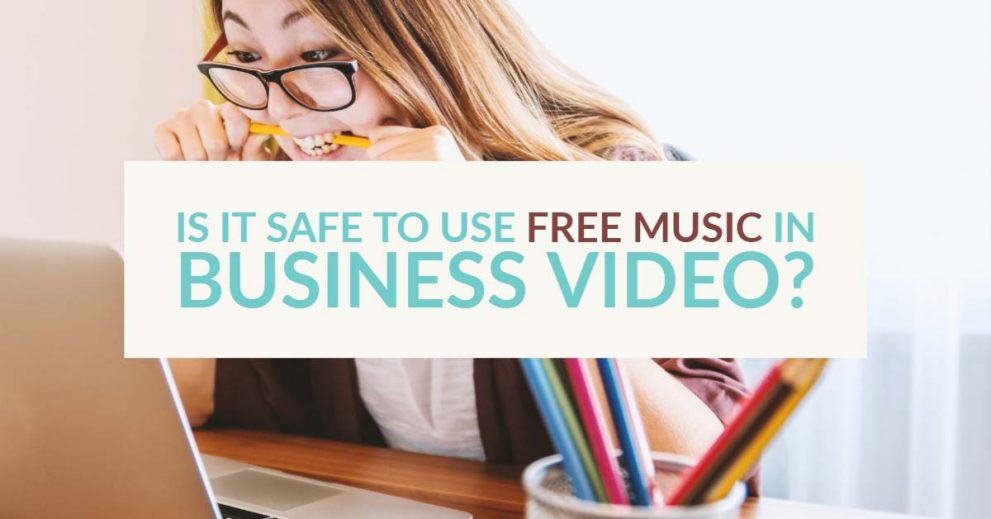
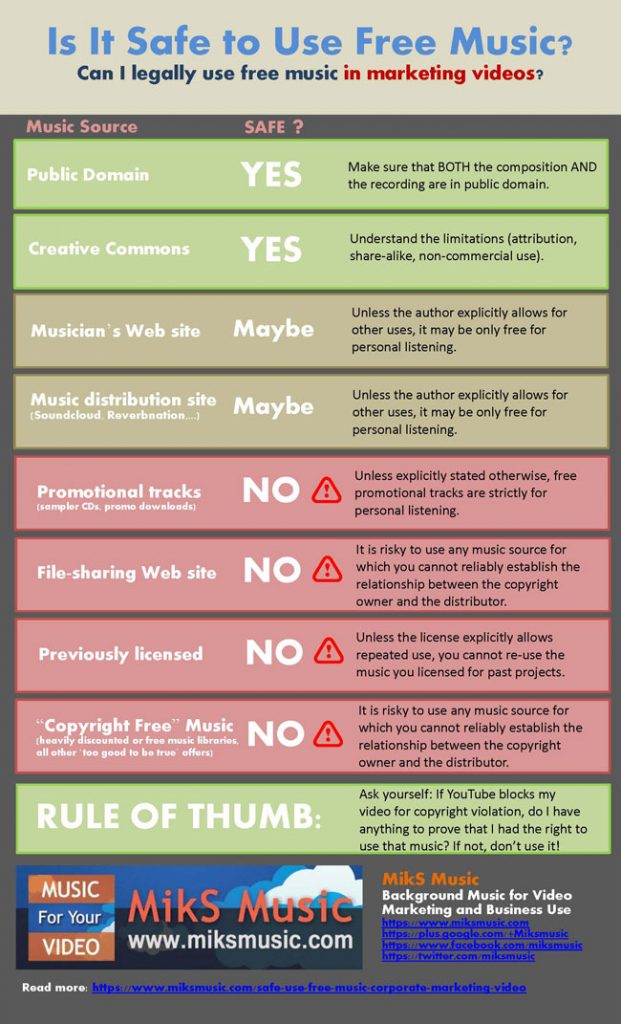
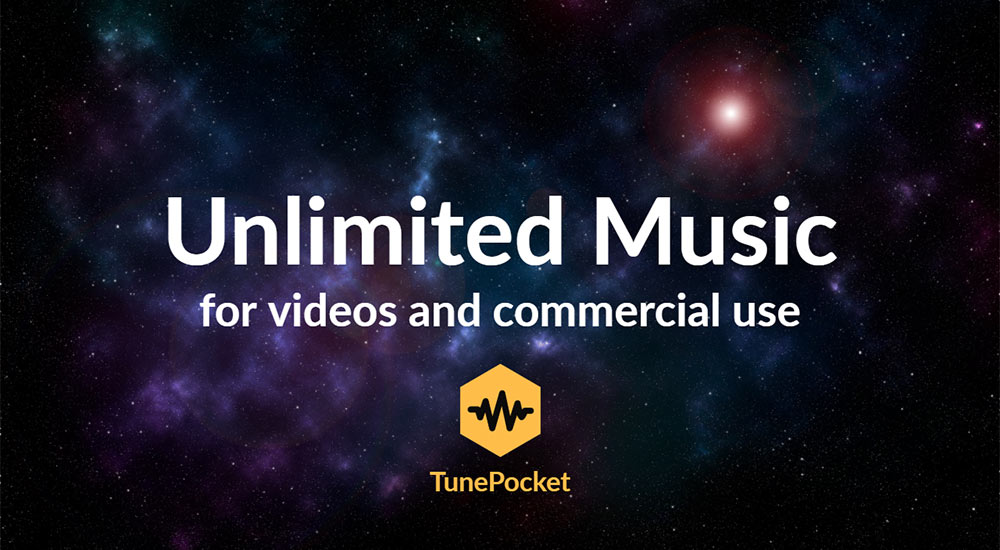
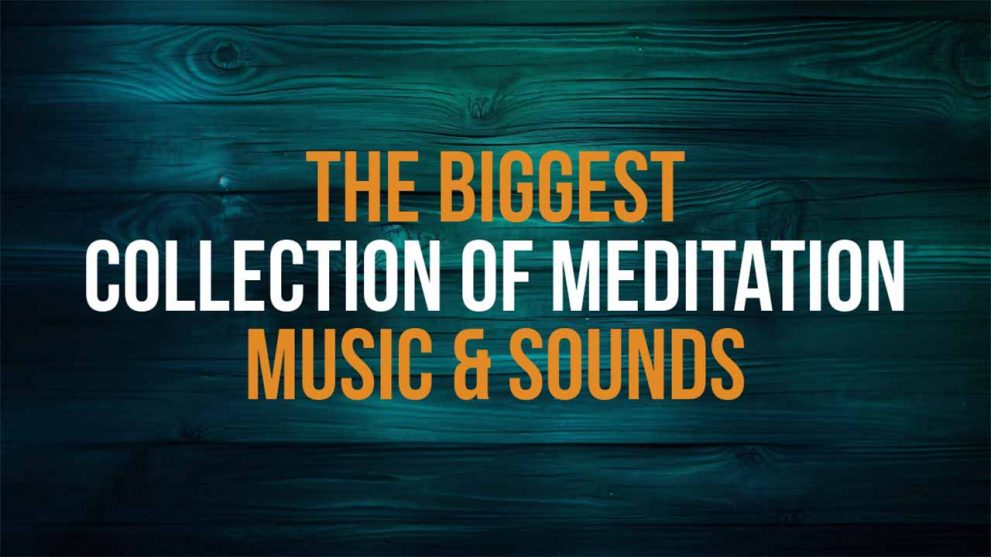
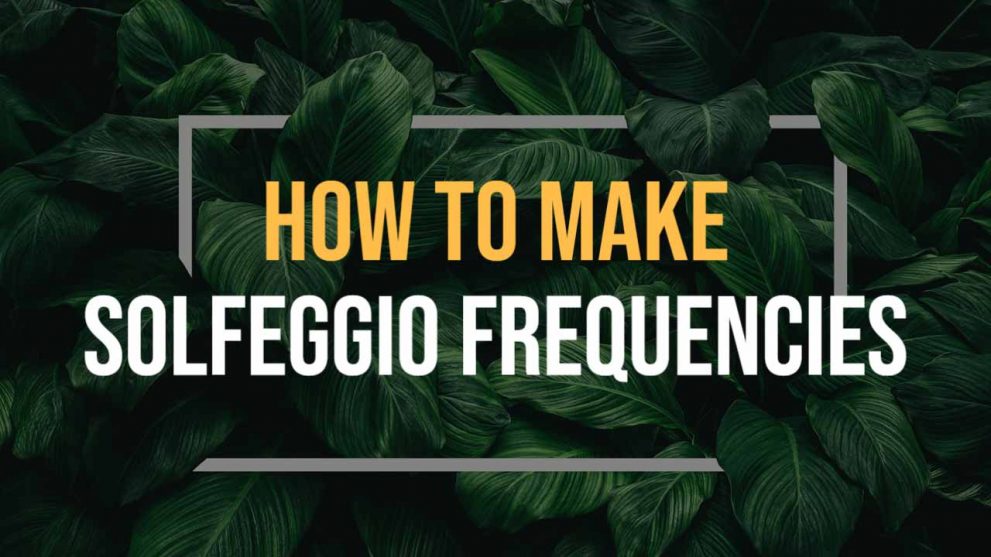
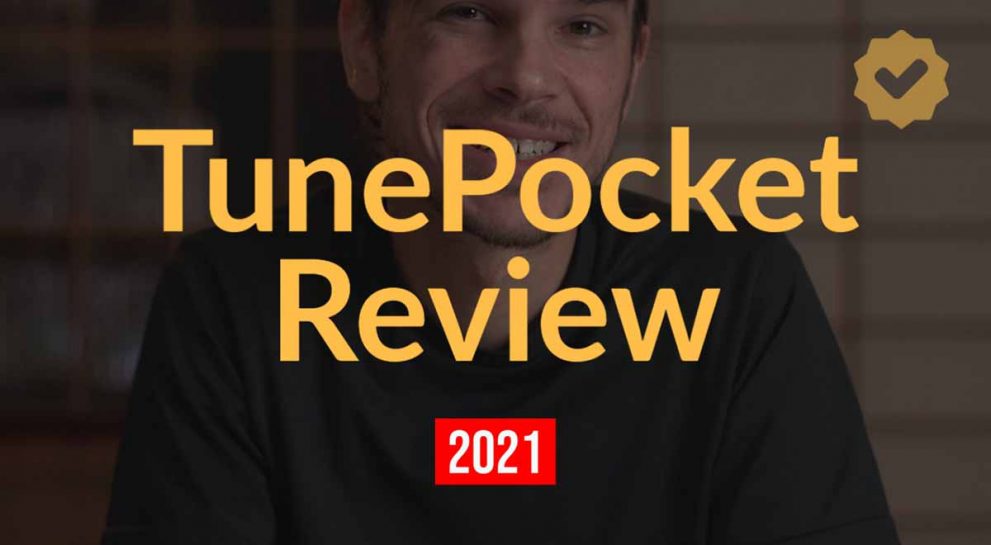
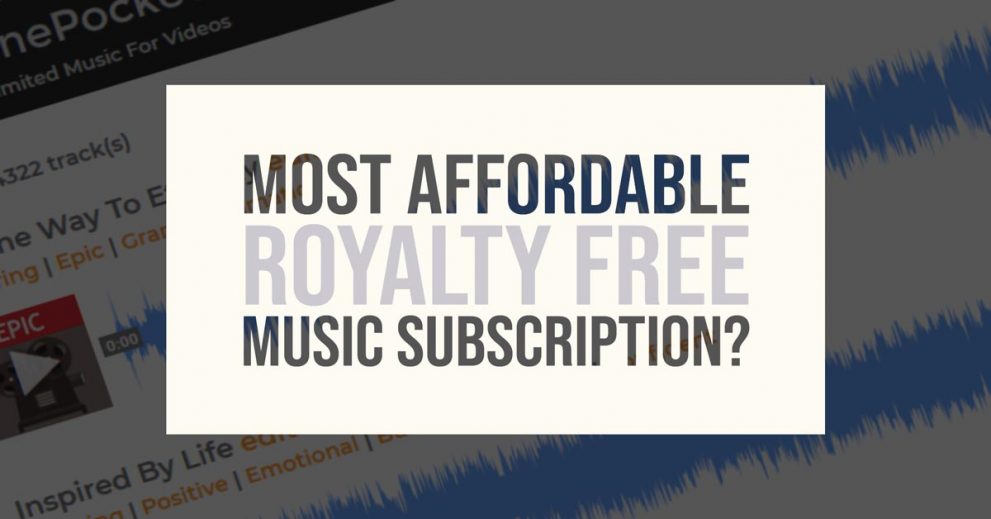
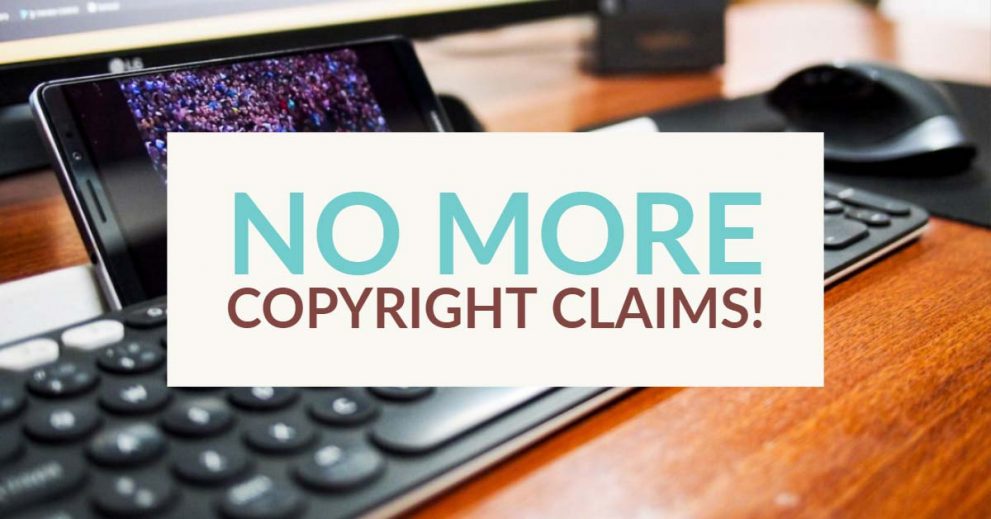
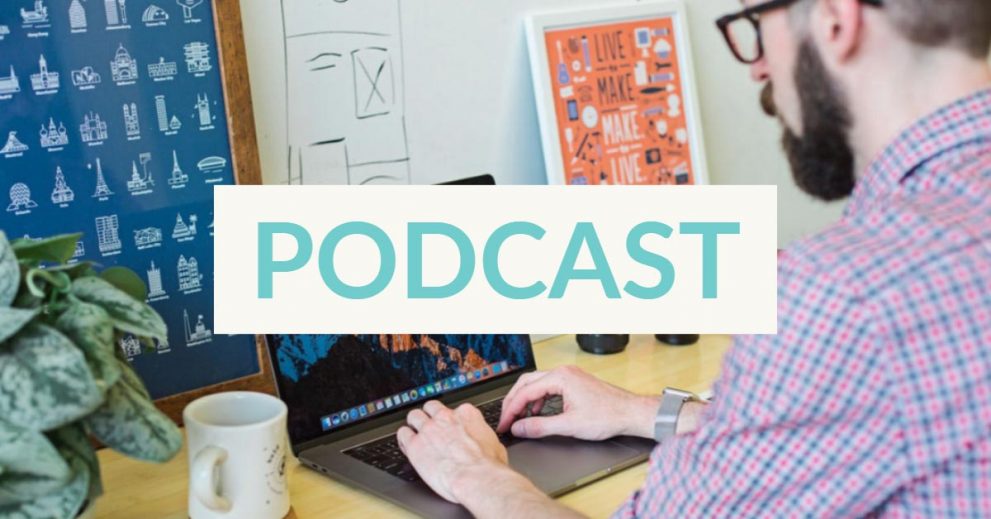








I just make videos as a hobby. If you’re like me and have zero need to use music for commercial reasons (read: pay very, very close attention to the license the music is under, typically a non-commercial, attribution, Creative Commons license), then Free Music Archive is pretty amazing.
So what if the bride and groom have a very special song that they absolutely love and want to be in their wedding video, or if I know of one that will fit their video absolutely perfectly? There’s almost no way these sites would have them. Would would be the best way to go about using that song?
I just make videos as a hobby. If you’re like me and have zero need to use music for commercial reasons (read: pay very, very close attention to the license the music is under, typically a non-commercial, attribution, Creative Commons license), then Free Music Archive is pretty amazing.